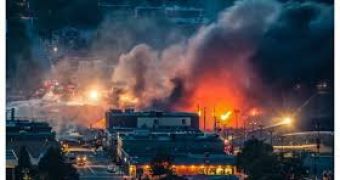Officials have concluded that volatile crude oil was being carried on the train involved in a recent derailment in Canada.
The Lac-Mégantic crash may not have killed 47 people, had the train not been carrying extremely flammable liquid.
CTV News gives details on a train derailment investigation carried out by Canada’s Transportation Safety Board.
While the oil was listed as a Class 3 Dangerous Good, which is also flammable, it should have been described as Class 2 oil.
"The lower flash point of the crude oil explains in part why the crude oil ignited so quickly once the Class 111 tankers were breached," TSB investigator Don Ross says.
Had there been Class 3 liquid on that train, the homes in the small town of Lac-Mégantic, near Quebec, would not have been blown away.
"I think that since the product characteristics are one thing to consider when identifying safe containment for it brings into question the adequacy of these tankers," Rob Johnston of the TSB comments.
Raynald Marchand of the Canada Safety Council also argued that proper labels would have influenced the conductor to act with more caution.
The shipment consists of products from North Dakota. The combined load included oil from different suppliers, which was passed on from truck to train.
Authorities believe that the wrong labels came about when the shipment was moved around and reloaded onto the train.
That responsibility falls onto Irving Oil, which performed the labeling. Their liability is currently under an investigation carried out by the Transportation Ministry.
"I have directed my officials are Transport Canada to examine this recommendation as quickly as possible. If a company does not classify its good it can be prosecuted under the transportations of dangerous goods act," Minister Lisa Raitt comments.

 14 DAY TRIAL //
14 DAY TRIAL //